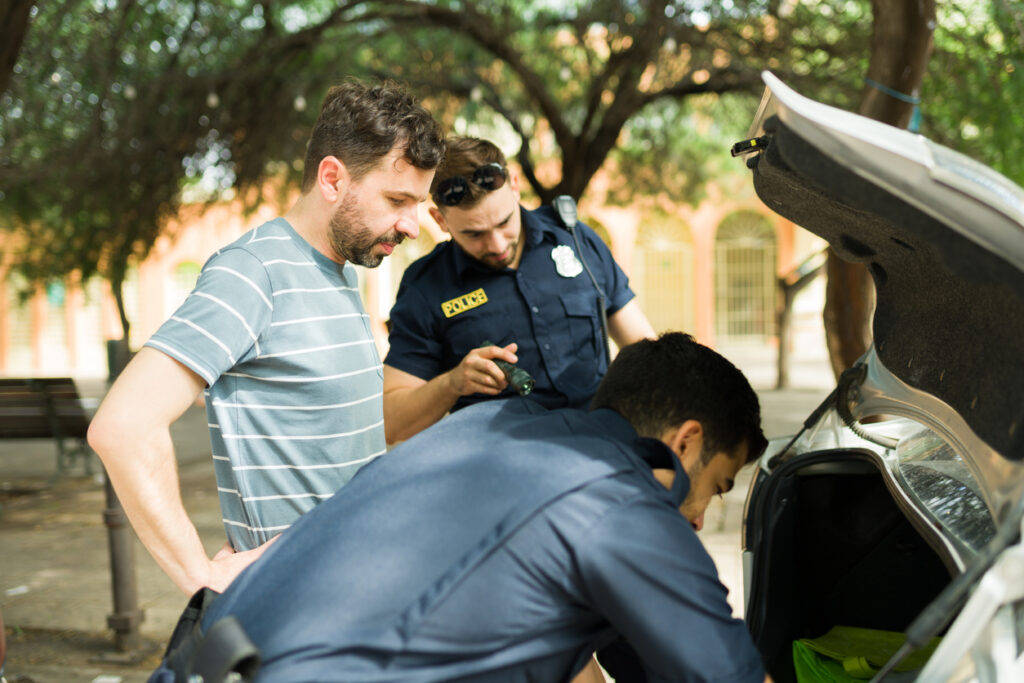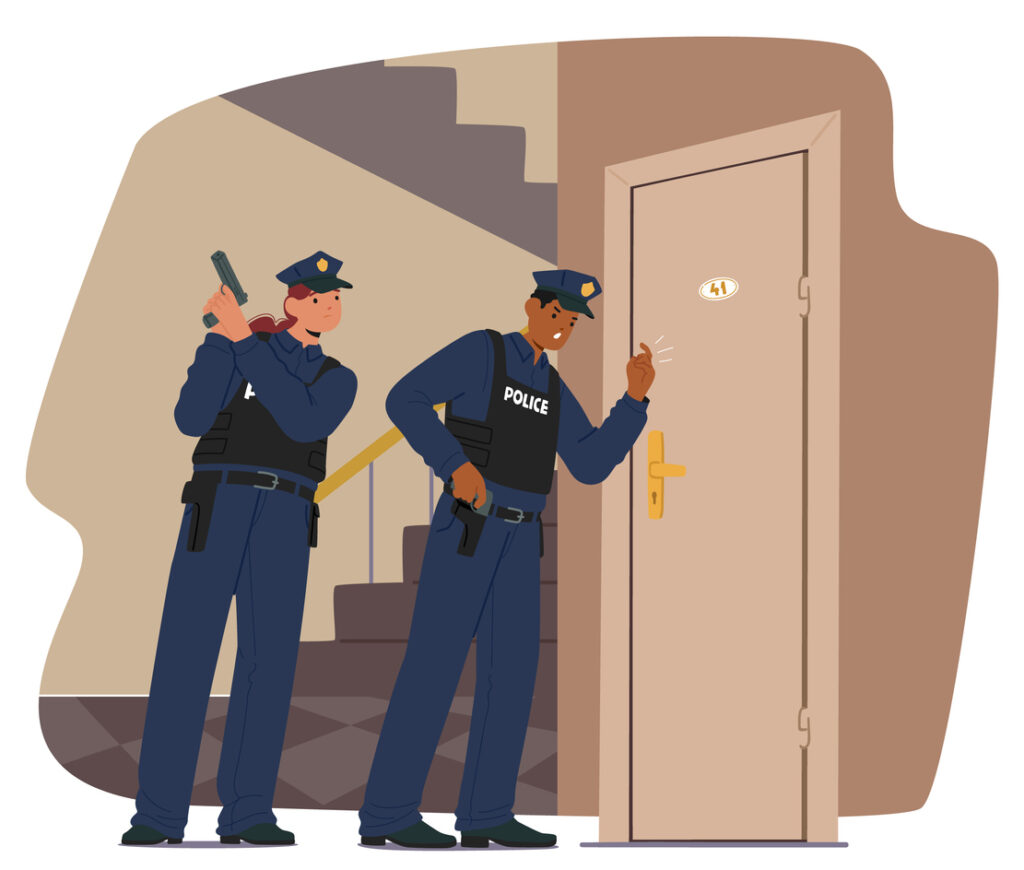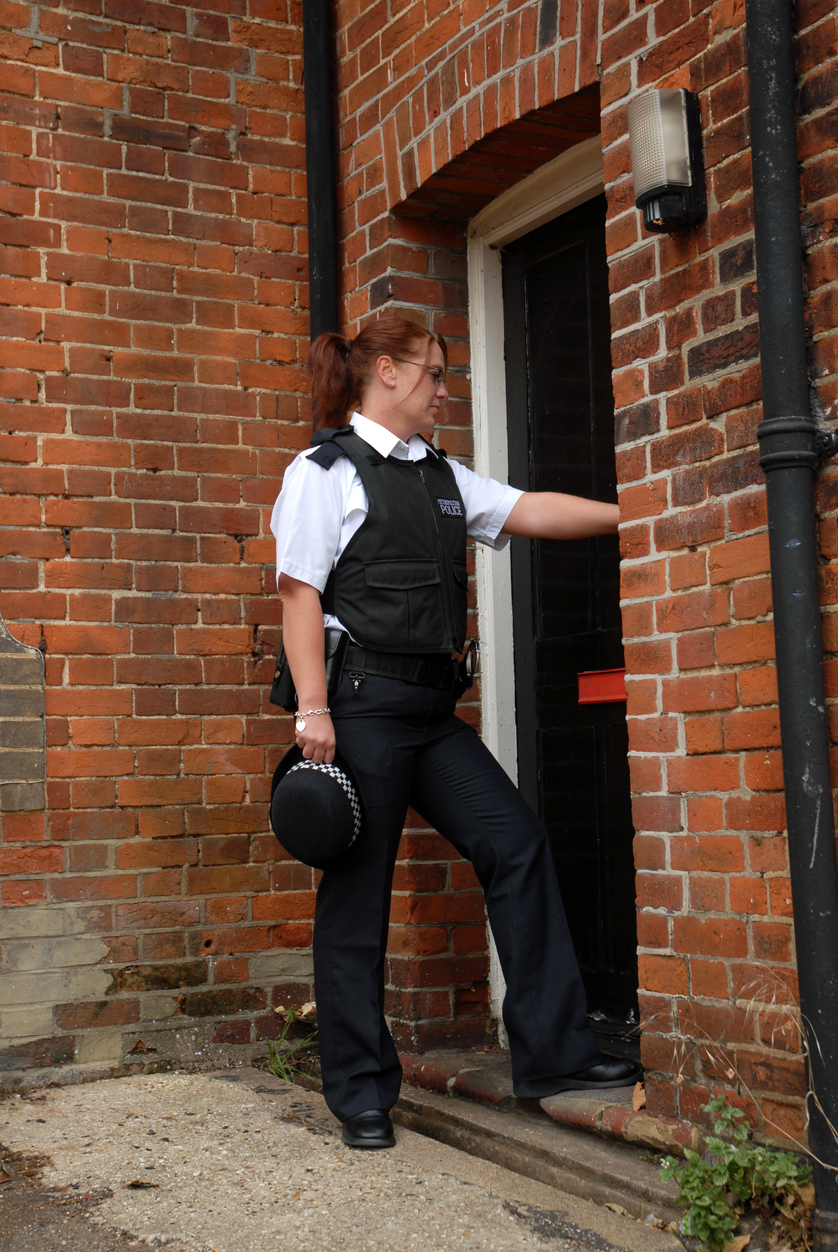When it comes to police search rights in South Carolina, many people overlook how these laws apply specifically to personal belongings like backpacks, purses, briefcases, and shopping bags. Whether you’re walking down the street, riding a bus, or pulled over during a routine traffic stop, the question of whether the police can search your bag is more complex than it seems. Unfortunately, misunderstandings about these rights lead people to unknowingly allow illegal searches or mistakenly believe they must comply with every request.
The laws surrounding police search rights in South Carolina are designed to protect individuals from government overreach. Your bag is an extension of your personal privacy, and officers must meet legal thresholds before they can inspect its contents. These thresholds vary depending on whether you’re detained, under arrest, inside a vehicle, or simply in a public area. Understanding what officers can do — and more importantly, what they can’t do — is essential for protecting your privacy and avoiding legal issues.
This guide explores how police search rights in South Carolina apply to bags and other personal property. It outlines the relevant legal standards, discusses what officers may claim as justification, and explains how you should respond when confronted with a search request involving your belongings.
How Police Search Rights in South Carolina Apply to Personal Bags
Your bag is not just an accessory — it’s a protected container under the Fourth Amendment. This federal constitutional protection against unreasonable searches and seizures is reinforced by police search rights in South Carolina, which generally require officers to have a warrant, your consent, or a valid legal exception to conduct a search.
If police stop you on the street or during a traffic stop and ask to look in your bag, they cannot do so without meeting one of those legal conditions. Yet officers frequently rely on ignorance or intimidation to pressure people into giving up their rights. That’s why knowing your police search rights in South Carolina is critical.
Whether it’s a backpack on your shoulder or a gym bag in your backseat, these items are protected under the law. Without a warrant or a compelling exception, police need your clear permission to search your belongings. Simply put: if you say no, they generally cannot proceed.
Consent Searches and the Limits of Voluntary Cooperation
A large number of searches in South Carolina occur because individuals give voluntary consent — often without realizing they had the option to refuse. If an officer says, “Mind if I take a quick look in your bag?” and you agree, you’ve just waived your police search rights in South Carolina. Once granted, consent legitimizes the search.
The problem is that many of these interactions aren’t as voluntary as they seem. If an officer surrounds you, uses an authoritative tone, or implies that refusal will lead to trouble, any “consent” you give may be legally questionable. Courts in South Carolina closely evaluate the context in which consent was granted. But asserting your rights in the moment remains your best defense.
The law is clear: you are allowed to say, “I do not consent to a search.” Asserting your police search rights in South Carolina in a respectful, firm manner helps protect you if the situation escalates or later winds up in court.

Vehicle Stops and the Search of Passenger Bags
During a traffic stop, police officers may attempt to extend their authority to the belongings inside your vehicle. Understanding how police search rights in South Carolina apply here is crucial, especially when bags belong to passengers and not the driver.
Police can only search bags in a car if they have probable cause, a valid warrant, or your consent. If a bag is in the trunk or belongs to a passenger who isn’t suspected of any crime, officers cannot automatically search it just because the driver was pulled over. This misunderstanding often leads to unnecessary and unlawful searches of innocent people’s property.
However, if an officer sees or smells contraband, such as illegal drugs, or witnesses behavior suggesting criminal activity, they may gain legal grounds for a more extensive search. In that case, they still must follow the limits imposed by police search rights in South Carolina and not conduct an open-ended or overly broad inspection.
For clarity on how searches should be interpreted and limited, the South Carolina Code of Laws provides detailed language that defines lawful boundaries for officers.
Police Stops on Foot: Can They Search Your Bag Without a Warrant?
Even if you’re not in a vehicle, police search rights in South Carolina still apply to your bag. If you’re walking on the street, waiting at a bus stop, or standing in a public park, police cannot search your bag without either your consent or a recognized exception such as probable cause or exigent circumstances.
An officer may initiate a conversation and attempt to inspect your bag under the guise of “routine questioning.” In these situations, you must clearly state your refusal. Say, “I do not consent to any search,” and ask, “Am I being detained?” If not, calmly walk away. Your refusal cannot be legally used as evidence of wrongdoing.
The bottom line: unless the officer has a legal justification, your police search rights in South Carolina give you the right to keep your belongings private.
Probable Cause and Warrant Exceptions in Bag Searches
There are circumstances where police may search your bag without a warrant or your permission. Understanding how these exceptions work is essential to evaluating whether your police search rights in South Carolina were violated.
One key exception is “probable cause.” If an officer sees something illegal in plain view or has a strong, articulable reason to believe your bag contains contraband, they may be able to lawfully search it. Another exception is “exigent circumstances,” which allows for a search if officers believe immediate action is necessary to prevent harm, destruction of evidence, or escape.
However, these exceptions are narrow, and officers cannot simply cite them to justify every search. Any deviation from standard procedures must still align with how police search rights in South Carolina are interpreted by courts.

Searches Following Arrests or Detentions
If you are arrested, officers are allowed to search you and the area within your immediate control. This includes bags that are physically on you or nearby. In this context, police search rights in South Carolina allow a more invasive inspection because the search is considered incident to arrest.
But detention alone — such as being stopped for questioning — does not grant the same level of authority. Unless the officer has probable cause, they still need your consent or a warrant to examine your belongings.
This distinction matters. People often believe that any police stop permits a full search. In truth, your police search rights in South Carolina protect you unless you’re under formal arrest or legal exceptions apply.
Your Rights in Public Schools and Government Buildings
Police search rights in South Carolina are slightly modified in places like public schools and government offices. In schools, for instance, administrators and school resource officers can conduct searches based on “reasonable suspicion” rather than full probable cause. This means your child’s backpack could be searched with fewer legal hurdles.
Still, students and employees maintain a degree of constitutional protection. Searches must be reasonable in scope and justification. If officers or staff go beyond what is necessary, those searches may still violate South Carolina law.
Sniff Dogs and Bag Searches: What the Law Permits
Law enforcement agencies sometimes use trained drug-sniffing dogs during traffic stops or at public events. In some instances, these dogs are used to inspect luggage, gym bags, and even shopping bags. If a dog alerts to your bag, it can give police probable cause to conduct a full search.
However, police search rights in South Carolina still require that such actions occur within the bounds of legal detention. If a traffic stop is prolonged solely to bring in a canine unit, that delay may render the entire search unlawful. The courts have ruled that the duration and justification for dog use must align with established procedural limits.
Recording such encounters and noting how long you were detained can be critical in challenging an unlawful search.
How to Assert Your Police Search Rights in South Carolina
During any encounter with law enforcement, how you speak and act has a direct impact on whether your police search rights in South Carolina are preserved or forfeited. If an officer asks to search your bag, you must calmly and clearly say, “I do not consent to any search.”
Do not argue, resist, or obstruct. Instead, stand your ground verbally. Ask if you’re being detained, and if not, remove yourself from the situation. If you are detained or arrested, invoke your right to remain silent and wait for legal counsel.
One of the best ways to reinforce your rights is to document the interaction. If it’s safe, record the conversation. This creates a factual record that may help if your rights are challenged later.
For more on how search procedures unfold in real-world situations, this police search rights in South Carolina article explains legal interpretations used in courts throughout the state.

Illegal Bag Searches and the Legal Consequences
If your bag was searched without a warrant, your consent, or probable cause, the search may be deemed illegal. Under the exclusionary rule, any evidence obtained during an unlawful search cannot be used against you in court. This principle protects your constitutional rights and reinforces the power of police search rights in South Carolina as a safeguard.
In some situations, you may also have grounds for a civil rights lawsuit. If the search involved excessive force, discrimination, or a clear violation of legal procedures, accountability may extend beyond the courtroom to civil claims against the officers or agency involved.
Conclusion: Take Control by Knowing Your Rights
Carrying a bag shouldn’t make you a target for random police searches. Yet countless individuals in South Carolina have had their privacy violated simply because they didn’t understand or assert their rights. By knowing the boundaries of police search rights in South Carolina, you protect yourself from unlawful intrusions and preserve your ability to challenge improper police conduct.
From routine stops to public settings and everything in between, your rights matter. Whether you’re carrying personal documents, medication, cash, or electronics, the law demands that officers respect your boundaries — and it’s your responsibility to make those boundaries clear.

Leave a Reply